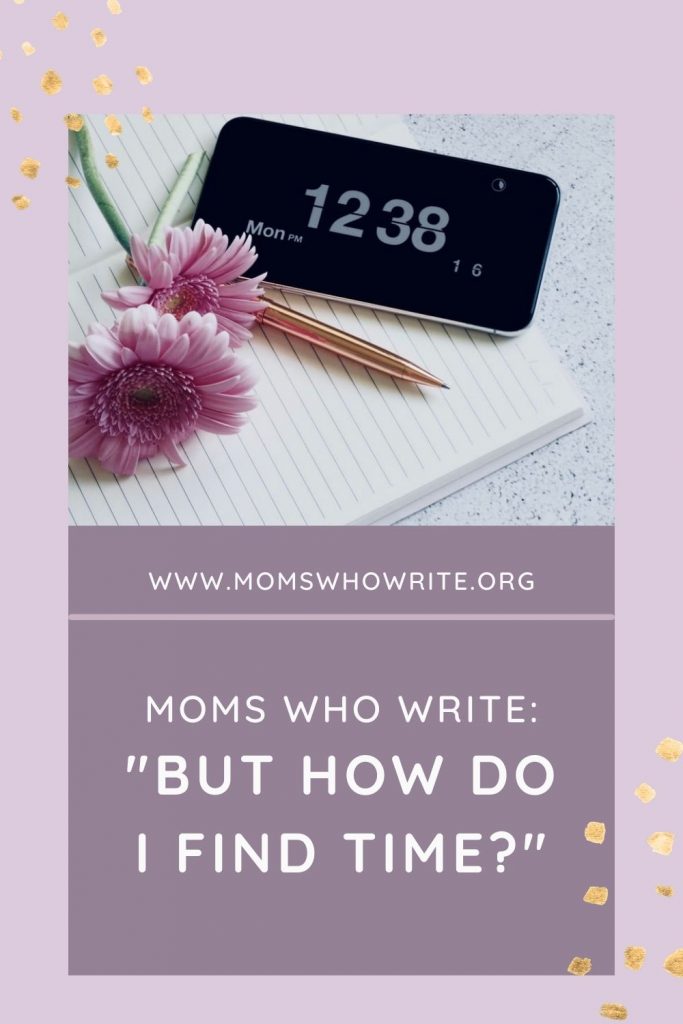I GET IT. There is never time for anything. Basic existence uses all 24 hours a day and forever leaves me needing more hours. Most days, I don’t sleep enough. I don’t eat on a schedule. I’m just hanging on for the ride and putting out the fire that seems the most insistent.
I’m going to tell you right now: The idea shouldn’t be to make more time. You have families and jobs and pets and LIFE things that will always need to be prioritized and it will be an ever-evolving to-do list that needs your attention.
What I’d like to do, though, is provide perspective. You don’t have to have the time to sit down and write 80,000 words this month to call yourself an author. You really, truly do not.
My current existence involves 3 children, a husband, a house full of animals, running a business AND working a part-time job simultaneously, and a lot of random hobbies. Busy is something I used to thrive on. Since becoming a mom, though, I’ve been working on one thing pretty consistently: I am not more important because I am busy.
Let’s jump into the practical things, shall we?
How do you do it all?
You actually just do not do it all. I know, it’s an irritating answer. Around here we refer to Norah Roberts a lot. Not familiar with her quote about knowing which balls to drop? Let me help.
The key to juggling is to know that some of the balls you have in the air are made of plastic & some are made of glass. And if you drop a plastic ball, it bounces, no harm done. If you drop a glass ball, it shatters, so you have to know which balls are glass and which are plastic and prioritize catching the glass ones.
Norah Roberts
You just have to decide what’s the most important. Laundry will sit, dishes will not get done, and you will 100% feel like you’re neglecting something every day. With the expectation set that there will never be enough time to do everything, let’s look at ways to do important things well.
Where do you start?
Writing a novel is overwhelming. The idea of plotting out a book, or even a series if you’re a crazy person, is so daunting that most people never even start. Once you start writing and thinking about publication, you realize that authors are quite literally insane. There are ways to approach writing that do not feel entirely terrifying.
Practice. A lot.
Creativity is a muscle. You have to exercise it. The more you use it, the better you’ll be. Would you attempt to run a marathon without practicing?
Practicing can mean a lot of things. For me, it’s journaling every day. This is my way of making sure that I get words flowing one way or another. That way, when I need to tackle something for publication, I’m warmed up. I’ve already collected some thoughts, and it takes me less time to get going when I start staring at a blank screen
Write for yourself.
Not everything has to be sent out into the world. If the idea of your aunt or your grandmother or your boss reading your work is terrifying, then don’t write something that they will read. In short, remove the pressure of tackling something you are going to be begging everyone to read.
Look at the smaller picture.
If you’re outlining, just start the outline. If you’re just starting Chapter 1, Chapter 27 is a Future You problem. Take it page by page and make each piece as good as you can make it.
Additionally, do not underestimate the value of short form work. Beyond being a viable marketing strategy, completing a piece of work will boost morale. Being an author that never finishes anything is so frustrating and can lead to imposter syndrome vibes that we just don’t tolerate around here.
Get an article on a website. Submit to an anthology. Post a poem on Instagram. Whatever your thing is, do that. It can help.
Stop setting unattainable word count goals.
I know goals come with the best intentions, but hustle culture is nonsense. In fact, arbitrary word count goals are a great way to set yourself up for failure. There is a natural ebb and flow to the creative process, and if you don’t allow for life to happen amidst your work you’re going to be constantly beating yourself up.
So, just don’t do it.
I know, it sounds crazy. But author rules are made up and whatever you decide works for you is fine. You don’t need the baggage of self-flagellation.

Remind yourself of your wins.
Ultimately, you’re doing everything you can do. Stop obsessing over your perceived failures every day. I’ve talked a lot about Done Lists. It has been a life-changing approach for me. Here’s the gist: When you feel like you didn’t get enough done, start recapping everything you did do. I write it in a green journal called my Done Journal.
This helps me keep perspective. Even on days when I feel like I accomplished exactly nothing, I’m able to cut through my own crap and realize that I fed my kids. They went to school. The animals got fed. I wrote 250 words for a social media post. WHATEVER I did counts. Housework, intentional family time, self-care moments like long baths and naps. It all matters. And it all makes the list.
You can’t start everywhere, so start somewhere. That’s all you can ask of yourself.
About the Writer: Allie Gravitt is a mom of 4 and lives in metro Atlanta with a house full of animals and plants. Her debut poetry collection, prisonbreaks, and second collection Killing Ghosts are available now on Amazon. Follow Allie’s writing journey on TikTok and Instagram.

1 thought on “Finding time: How to make writing manageable”